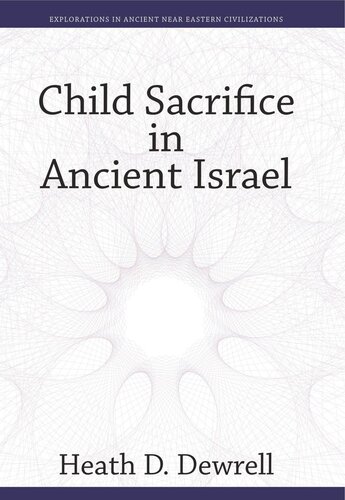

Most ebook files are in PDF format, so you can easily read them using various software such as Foxit Reader or directly on the Google Chrome browser.
Some ebook files are released by publishers in other formats such as .awz, .mobi, .epub, .fb2, etc. You may need to install specific software to read these formats on mobile/PC, such as Calibre.
Please read the tutorial at this link: https://ebookbell.com/faq
We offer FREE conversion to the popular formats you request; however, this may take some time. Therefore, right after payment, please email us, and we will try to provide the service as quickly as possible.
For some exceptional file formats or broken links (if any), please refrain from opening any disputes. Instead, email us first, and we will try to assist within a maximum of 6 hours.
EbookBell Team

4.1
90 reviewsAmong the many religious acts condemned in the Hebrew Bible, child sacrifice stands out as particularly horrifying. The idea that any group of people would willingly sacrifice their own children to their god(s) is so contrary to modern moral sensibilities that it is difficult to imagine that such a practice could have ever existed. Nonetheless, the existence of biblical condemnation of these rites attests to the fact that some ancient Israelites in fact did sacrifice their children. Indeed, a close reading of the evidence—biblical, archaeological, epigraphic, etc.—indicates that there are at least three different types of Israelite child sacrifice, each with its own history, purpose, and function.
In addition to examining the historical reality of Israelite child sacrifice, Dewrell’s study also explores the biblical rhetoric condemning the practice. While nearly every tradition preserved in the Hebrew Bible rejects child sacrifice as abominable to Yahweh, the rhetorical strategies employed by the biblical writers vary to a surprising degree. Thus, even in arguing against the practice of child sacrifice, the biblical writers themselves often disagreed concerning why Yahweh condemned the rites and why they came to exist in the first place.